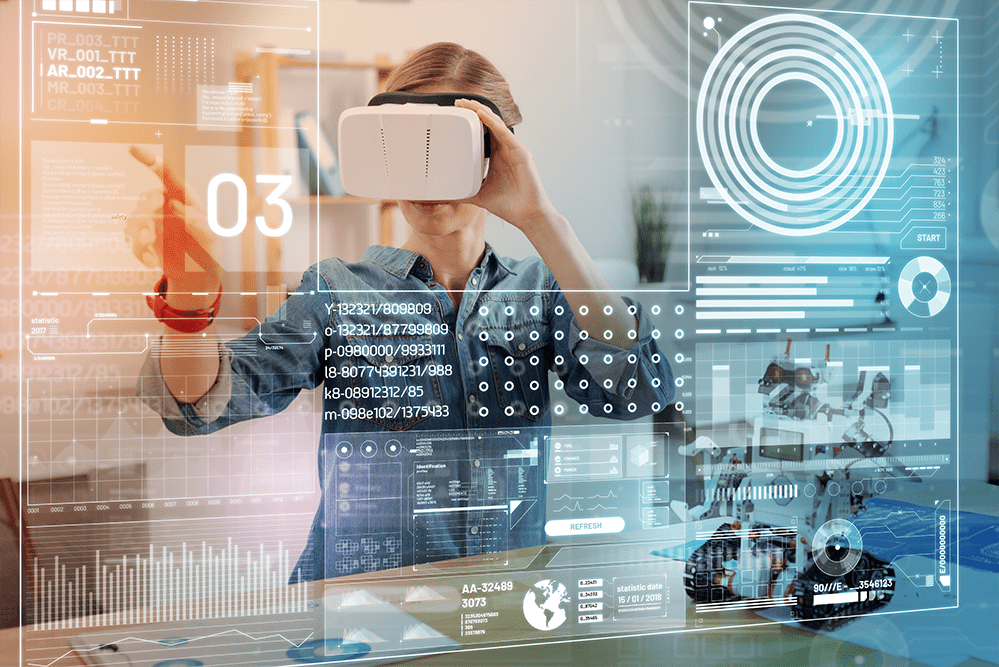The 5 Most Important Job Skills For The Future
2 July 2021
Our workplaces are changing, and the changes are dramatic. Professionals need to pay attention to and prepare for the workplaces of the future. An important aspect of this preparation is to develop the job skills that will help you succeed and thrive in the new reality of the next decade. Consider how your own career has evolved over the last five years, and you can imagine how much it may change in the next five. These are the most important job skills for the future, and there’s no better time than now to start building them.

Why all the change?
The pace of change is being driven by several factors. Our world is more interconnected than ever before, allowing us to work remotely and work with people from different cultures as easily as if they were in the office next door. People are living and working longer, which creates an age-diverse workforce. In addition, what was once science fiction has become a reality for many of us—machines augment our skills, free us up to focus on higher-level activities, and can even be our colleagues today. We are now collecting and able to process data to use it to our business advantage in a way that was never possible previously.
With all these changes, the skills employers will seek from their human workforce and what professionals need to develop as marketable skills to get the jobs of the future have changed.
5 Most Important Job Skills for the Future
1. Emotional intelligence
Organisations have been looking for people who are emotionally intelligent for quite some time, but it’s becoming more and more important. What is emotional intelligence? It’s our ability to understand and express our own emotions, as well as understand someone else’s emotions. Developing emotional intelligence (EQ) is something everyone should be focusing on.
2. Creativity
As humans, we have this amazing ability to be creative, imagine, and invent new things. Creativity boosts innovation, which results in economic growth. It’s fresh thinking that will give companies a competitive advantage so every company will want creative employees in the future. If your company employs people who can figure out how to do things nobody else is doing, it will stand out. It’s important to realise that creativity isn’t the sole skill of artists. Creativity can be improved and fostered in anyone’s life.
3. Flexibility and adaptability
What we’re currently seeing is fewer and fewer skills and jobs for life. Therefore, we need to constantly adapt and learn new things. In fact, the half-life of skills is reducing at a drastic rate. What we’voe learnt today will be out of date in two or three years’ time. Everyone will need to build their flexibility and adaptability skills, so they are prepared to update their skills every few years and accept new ways of doing things.
4. Data literacy
Data is the fuel of the 4th industrial revolution that we’re experiencing today. Companies are bombarded by data. The data explosion is worthless to companies unless their people have the data skills to extract insights and make better decisions based on the data. There is a big data skills gap in the market at the moment. While not everyone needs to be a data scientist, all professionals should be data literate. The first step to improve data literacy is to be curious, keep asking “why” and own the data you are already exposed to. You should figure out where the data comes from and how to use it.
5. Tech savviness
The final important job skill for the future is tech-savviness. The 4th industrial revolution is bringing together a lot of major technology trends. On their own, these individual technologies would transform businesses, but together they are completing reshaping our world. These technologies include artificial intelligence, big data, extended reality robotics, internet of things, 3D printing, and blockchain, and when they interact with each other, it’s changing our world. Everyone needs to understand what these changes are, how fast these different technologies are developing, and what that means for your business.
Related Articles
20 Game-Changing AI Tools Every Small Business Leader Needs Now
By now, “smart” versions exist of just about every home appliance, gadget and gizmos we can think of. However, manufacturers continue[...]
New Study Reveals True AI Capabilities And Job Replacement Risk
By now, “smart” versions exist of just about every home appliance, gadget and gizmos we can think of. However, manufacturers continue[...]
How Generative AI Will Affect Jobs In Restaurants And Hospitality
By now, “smart” versions exist of just about every home appliance, gadget and gizmos we can think of. However, manufacturers continue[...]
Why AI Agents Are The Missing Link Between Enterprise Ambition And Execution
By now, “smart” versions exist of just about every home appliance, gadget and gizmos we can think of. However, manufacturers continue[...]
5 Mistakes Most Businesses Will Make This Year With Sustainability
By now, “smart” versions exist of just about every home appliance, gadget and gizmos we can think of. However, manufacturers continue[...]
5 Powerful AI Prompts That Can Boost Any Business Idea
By now, “smart” versions exist of just about every home appliance, gadget and gizmos we can think of. However, manufacturers continue[...]
Sign up to Stay in Touch!
Bernard Marr is a world-renowned futurist, influencer and thought leader in the fields of business and technology, with a passion for using technology for the good of humanity.
He is a best-selling author of over 20 books, writes a regular column for Forbes and advises and coaches many of the world’s best-known organisations.
He has a combined following of 4 million people across his social media channels and newsletters and was ranked by LinkedIn as one of the top 5 business influencers in the world.
Bernard’s latest book is ‘Generative AI in Practice’.










Social Media